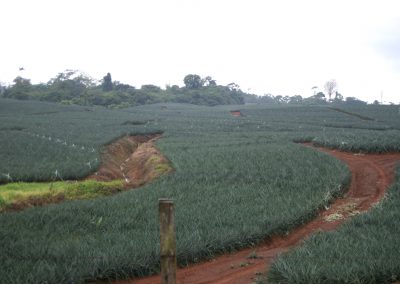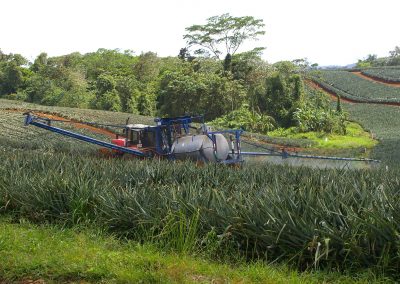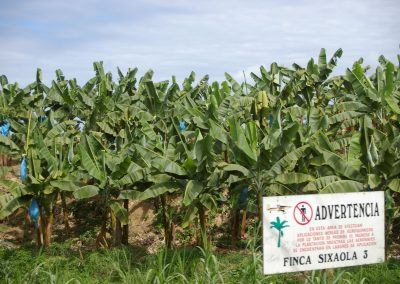The Supply Chain Act using the example of pineapples and bananas
Since 1989, we at Tropica Verde e.V. have been committed to the preservation of the rainforests in Costa Rica, to the reforestation of cleared areas, to planting campaigns, to species protection and biodiversity, to environmental education and support for the local population and their involvement in our projects – and we constantly inform our members, donors and interested parties about aspects of living and production conditions in Costa Rica that are relevant and important for our projects.
On the one hand, Costa Rica is a country with breathtaking biodiversity, with many nature reserves, a high proportion of renewable energies such as hydropower, wind power and geothermal energy, a stable democratic system, a constitutional state with a developed civil society – but on the other hand, it also has very precarious living conditions on the outskirts of the cities, but especially in rural and remote areas, with rural exodus, high youth unemployment and disastrous agricultural monocultures for the cultivation of pineapples and bananas.
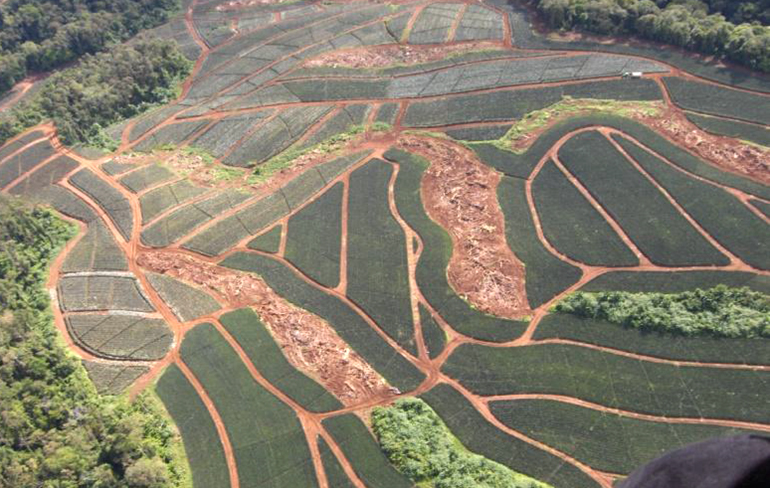
These sprawling monocultures are catastrophic,
-
because they are not only bulldozed on former pasture land, but bush and forest areas are also flattened,
- because they are repeatedly sprayed with liquid fertilizers and fungicides that are harmful to the environment and human health,
- because the toxins are now contaminating the groundwater and, as a result of tropical rainfall, streams, rivers and coastal waters,
- because they are absolutely hostile to the natural animal and plant world and
- therefore also damage all local nature conservation projects – including ours.
But what does this have to do with the Supply Chain Act?
The Supply Chain Act attempts to make German importers responsible for ensuring fair wages and decent working conditions in the producing countries and along the entire supply chain. In our case, these are the five large food chains REWE, ALDI, LIDL, METRO and EDEKA, which have used their market power and competition with each other to ensure that we as consumers have been able to buy pineapples and bananas more cheaply than ever before over the last 15 years.
At the same time, however, the Big 5 have pushed down prices in Costa Rica to such an extent that cultivation is only worthwhile if ever larger quantities are produced and ever lower wages are paid.
OXFAM sharply criticized this exploitation in its supermarket check at the beginning of April 2022 and rated the Big 5 according to their respective positive or negative contribution. It is interesting to note that LIDL, ALDI and REWE have already made some progress in terms of transparency and pilot projects, but also that a Costa Rican pineapple supplier to EDEKA pays its workers just €4.50 a day, which is not enough to live on in Costa Rica – but perhaps in the border regions of Nicaragua and Panama, where most of the low-wage workers are hired on a seasonal basis.
Because the basic problem remains: all our cheap imports give us consumers low prices and an incredible variety of products, but at the expense of producers, nature and the climate. It’s not just tropical fruit or textiles, but a wide range of products that are pleasant and affordable for our lives, but at the same time make us dependent on international supply chains, such as oil, natural gas, coal, steel, industrial primary products, microchips and computers.
When it comes to the price problem, our importers always like to point to the market power of consumers, who do not have to buy the cheapest products and can control supply with their demand. This is only true to a limited extent if we consciously opt for sustainably produced (and regional) organic products. But the main responsibility still lies on the seller’s side when, as in our example, the Big 5 undercut each other on price in order to increase their market share and entice us with their special offers.
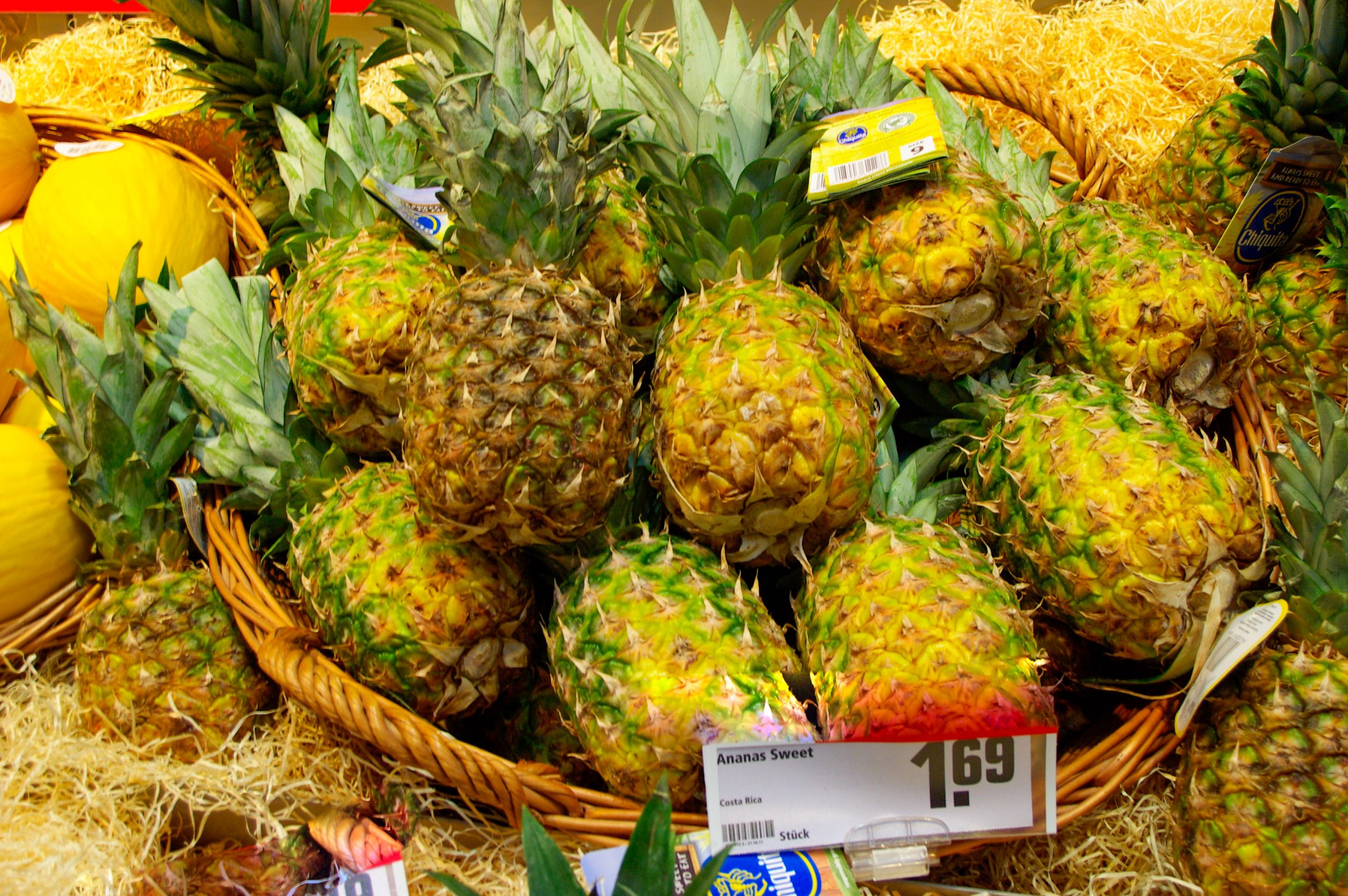
While the cheapest banana at Lidl costs 1.09 euros per kilogram (Fairtrade), at Aldi Süd bananas are available for 0.99 euros per kilogram (Rainforest Alliance) and at Aldi Nord for 1.09 euros (Rainforest Alliance). Edeka is currently even undercutting the price at 0.88 euros per kilogram (Rainforest Alliance – Gut & Günstig). According to the company, this is a short-term promotion. At Rewe, a banana is available from 0.99 euros per kilogram (Rainforest Alliance). Banana prices on the German market are on average 30 percent lower than in Italy and France. No wonder, Germany is the motherland of discounting.
What can we do as sensitized consumers?
- Limit our consumption to the essentials,
- sustainable and conscious shopping,
- Avoid cheap offers,
- Support fair trade campaigns

Wolfgang Schmidt
